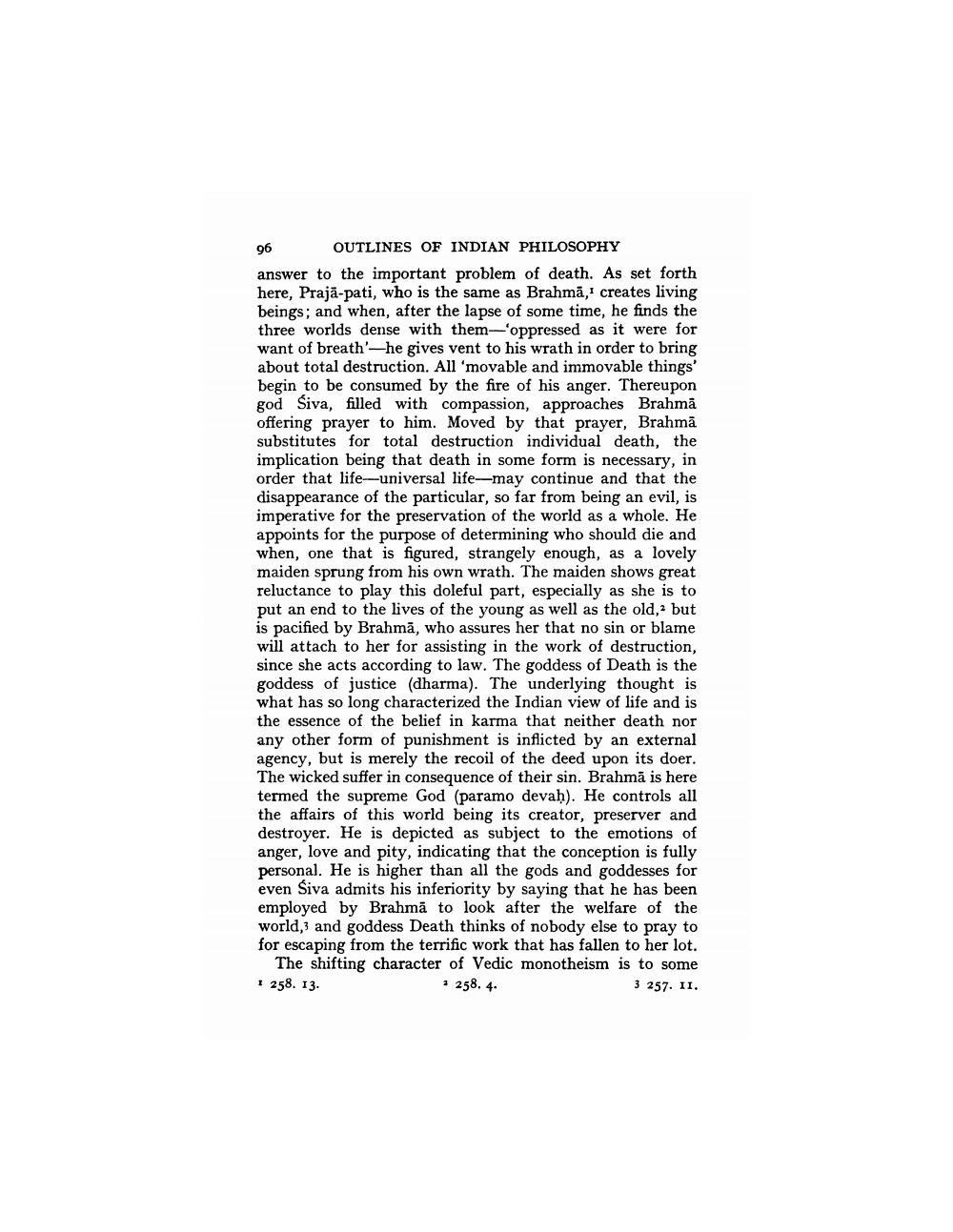________________
96
OUTLINES OF INDIAN PHILOSOPHY
answer to the important problem of death. As set forth here, Praja-pati, who is the same as Brahma, creates living beings; and when, after the lapse of some time, he finds the three worlds dense with them-'oppressed as it were for want of breath'-he gives vent to his wrath in order to bring about total destruction. All 'movable and immovable things' begin to be consumed by the fire of his anger. Thereupon god Śiva, filled with compassion, approaches Brahma offering prayer to him. Moved by that prayer, Brahmā substitutes for total destruction individual death, the implication being that death in some form is necessary, in order that life-universal life-may continue and that the disappearance of the particular, so far from being an evil, is imperative for the preservation of the world as a whole. He appoints for the purpose of determining who should die and when, one that is figured, strangely enough, as a lovely maiden sprung from his own wrath. The maiden shows great reluctance to play this doleful part, especially as she is to put an end to the lives of the young as well as the old, but is pacified by Brahmā, who assures her that no sin or blame will attach to her for assisting in the work of destruction, since she acts according to law. The goddess of Death is the goddess of justice (dharma). The underlying thought is what has so long characterized the Indian view of life and is the essence of the belief in karma that neither death nor any other form of punishment is inflicted by an external agency, but is merely the recoil of the deed upon its doer. The wicked suffer in consequence of their sin. Brahma is here termed the supreme God (paramo devaḥ). He controls all the affairs of this world being its creator, preserver and destroyer. He is depicted as subject to the emotions of anger, love and pity, indicating that the conception is fully personal. He is higher than all the gods and goddesses for even Śiva admits his inferiority by saying that he has been employed by Brahma to look after the welfare of the world, and goddess Death thinks of nobody else to pray to for escaping from the terrific work that has fallen to her lot. The shifting character of Vedic monotheism is to some 1 258. 13. 258. 4.
3 257. II.




